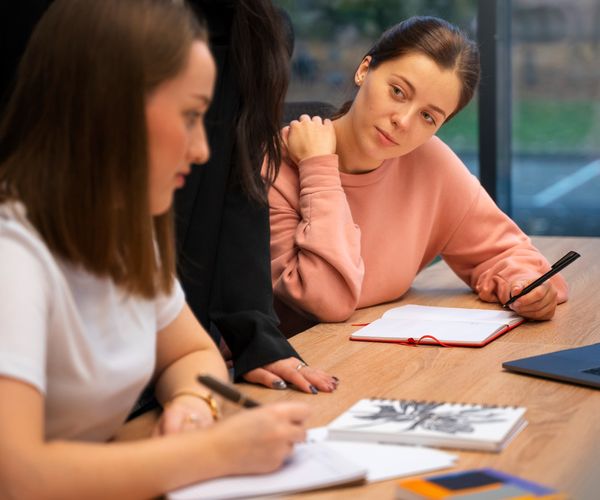Lessons Learned from Emerging Women Leaders
The Emerging Women Leaders (EWL) Program is a career mentorship program for doctoral students at Boston University School of Public Health. It aims to inspire and support the next generation of leaders by equipping them with essential skills and insights to advance their professional development and thrive in their current or future careers. At the year’s onset, each group of doctoral students are matched with a mentor in academia, government, or industry. These mentorship circles provide each student an opportunity to 1) build meaningful relationships with established leaders in public health, and 2) foster connections with others outside their degree program. Throughout the year, EWL also hosts seminars and workshops designed to empower and educate doctoral students on several topics, including networking, effective and inclusive mentorship, salary negotiation, and alternative career paths beyond academia.
Here, we outline three lessons we learned as mentees in the EWL Program.
- Lesson #1: Through the mentorship circles, EWL helped us better understand how to build and sustain our professional network. As doctoral students, we are often told about the importance of networking for professional and personal growth but are seldom mentored on how best to approach this. For instance, cold-emailing professors or future connections asking to connect can sometimes feel incredibly daunting, especially at the beginning of your degree program. However, the “worst thing” that could happen is that said connection simply does not respond to your email… which is not a bad outcome. When doing this, remember and empathize that everyone is busy. This helps put into perspective that nonresponse is not “the worst thing in the world” nor reflective of who you are or your abilities. It is okay to be uncomfortable with emailing someone you do not know, but pushing through is key to building a wide network.
- Lesson #2: Good mentoring cannot be taught, but it can be learned. Aligning mentor-mentee expectations is paramount, as is creating an environment conducive to open dialogue. The curriculum in the EWL Mentor Academy emphasized the necessity of clear communication about mentor-mentee responsibilities in efforts to maintain a productive mentoring relationship. Without this clarity, the mentoring relationship can fall prey to disappointments, inefficiencies, and frustrations. We also discussed varied approaches to identify and address communication barriers as well as adapt to varying communication or work styles. Acknowledging these nuances can nurture a respectful partnership. Through shared experiences, thoughtful questioning, and recognizing each other’s strengths, we can foster trust and develop a sustainable strategy that supports a meaningful mentor-mentee relationship.
- Lesson #3: As doctoral students, we often wrestle with how to effectively negotiate our monetary value in professional roles. Many of us have been advised that negotiating is nearly impossible, especially for academic positions like postdoctoral fellowships. However, through the EWL Program, we learned that negotiation is always an option and there are effective strategies to improve one’s chances for achieving a successful outcome. First, it’s crucial to research typical salaries for comparable roles before initiating discussions about salary increases or additional benefits. While personal preferences are important, aligning your request with market rates can increase the likelihood of a favorable response from a potential employer. Second, ensure that you are negotiating with the same person who interviewed you as this individual will possess a better understanding of your qualifications and the attributes needed for success in the role. Lastly, approach the negotiation with confidence, remembering that the “worst outcome” is simply a no from your potential employer —and that’s okay.
In summary, the activities of the EWL Program served as a powerful reminder that mentorship is invaluable at every career stage, but it can be particularly transformative for doctoral students. For many, the mentor-mentee relationship alone becomes a defining element of their doctoral experience, while others concurrently value the events organized by the EWL Program. Nevertheless, we agree that the dedicated time spent on leadership skills and career reflection—beyond our degree program—proved to be a worthwhile investment, enhanced by interactions with like-minded peers destined to become trailblazers in public health.
In light of these lessons, we encourage others to consider participating in the EWL Program. The EWL Program’s commitment to collective support enriched our doctoral experience.



